How to Administer Magnesium to Babies and Children
Magnesium is an essential major mineral required for a wide range of tasks in the body. It is required for 300+ enzymatic reactions in the body, and plays an important role in protein synthesis, muscle and nerve function, and the regulation of blood glucose levels and blood pressure. Magnesium is also necessary for the production of energy, bone structure development, and the synthesis of RNA and DNA, as well as for the production of the powerful antioxidant, glutathione. Magnesium’s role in transporting calcium and potassium across cell membranes throughout the body also makes it one of the most important minerals for maintaining normal heart rhythm, muscle contraction, and nerve impulse conduction.Magnesium deficiency has been found to cause or be closely linked to the following health problems in people of all ages (including in babies and children):
- Heart rhythm abnormalities
- Coronary spasms
- Seizures
- Personality changes
- Muscle cramps/contractions
- Restless leg syndrome
- Insomnia
- ADHD (and hyperactivity in general)
- Fibromyalgia
- Anxiety
- Irritability and nervousness
- High blood pressure
- Type II diabetes
- Migraine headaches
- Osteoporosis
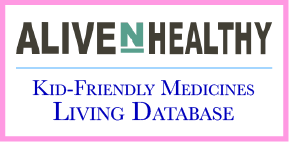 The Kid-Friendly Medicines Living Database NOW AVAILABLE! Click here to sign up...
The Kid-Friendly Medicines Living Database NOW AVAILABLE! Click here to sign up...
Magnesium for ADHD
Magnesium deficiency is highly common among children with ADHD, with one study finding that around 72% of children are likely to be deficient in this mineral, and another study suggesting that even up to 95% of children with ADHD are magnesium deficient.Research has found that supplementation with magnesium in magnesium-deficient ADHD children improves cognitive performance, reduces hyperactivity and impulsivity, and improves attention and focus. Multiple studies have had similar results. Combining magnesium with vitamin B6 supplementation appears to produce even more significant effects. One study found that the combination of magnesium and vitamin B6 supplementation was able to reduce central nervous system hyperexcitability more effectively. The children in this study had lower rates of instability, physical aggressiveness, poor attention, spasms, hypertony, and myoclony after 1-6 months of treatment with magnesium and vitamin B6.
In this article, we talk more about the use of magnesium (and vitamin B6) for the treatment of ADHD in both children and adults. This article also looks at other essential nutrients that are lacking in ADHD children.
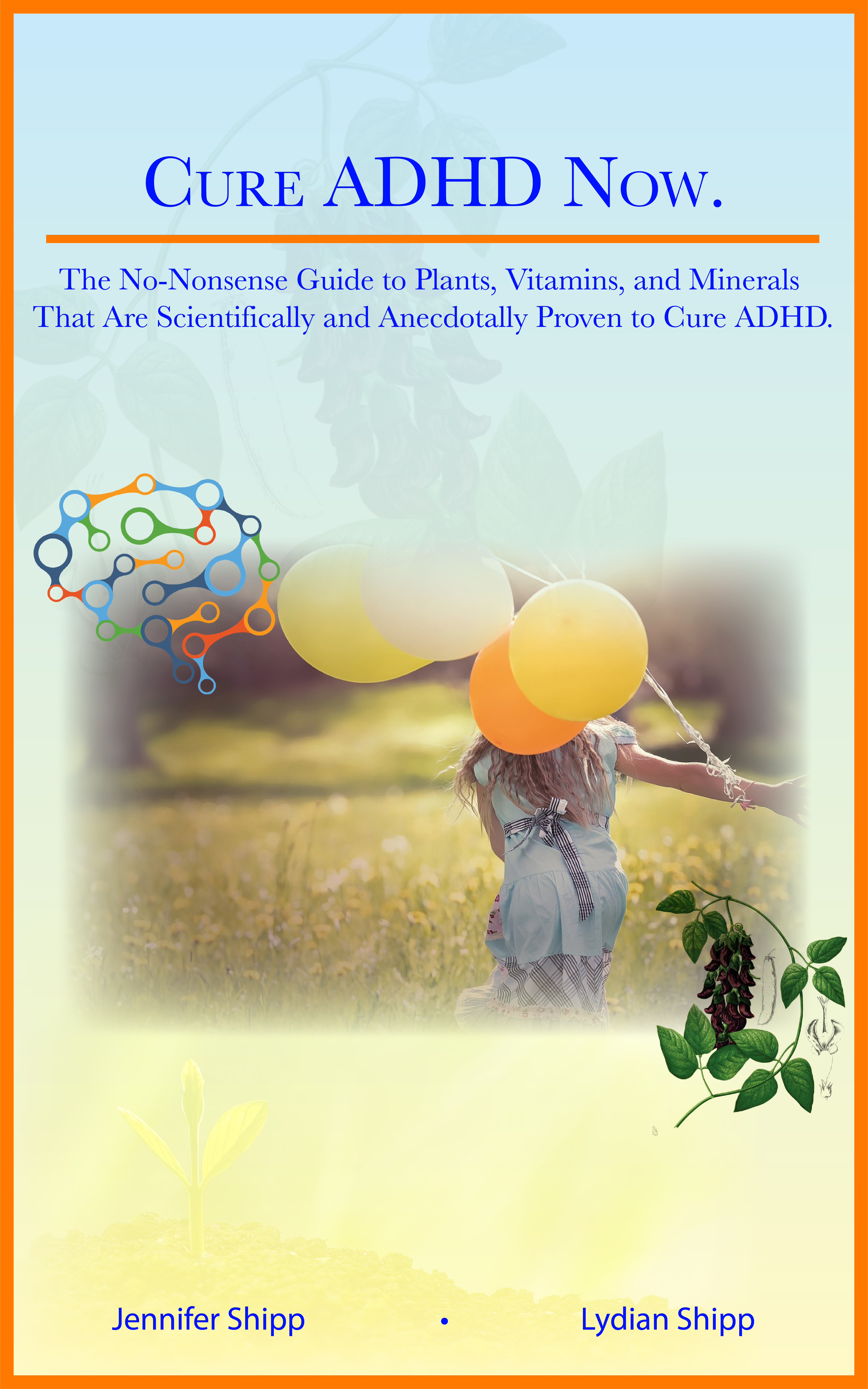
Magnesium and T Cell Lymphoblastic Leukemia
While magnesium isn’t usually a supplement that most people think of when it comes to treating cancer, recent research suggests that this essential mineral may play a role in the treatment of childhood cancers. Chronic magnesium deficiency, as well as chronic zinc deficiency, have been found to be common in children with acute lymphoblastic leukemia (ALL) and malignant lymphoma (including Burkitt’s lymphoma, Hodgkin’s lymphoma, and non-Burkitt, non-Hodgkin lymphoma). The research indicates that supplementation with both magnesium and zinc may help support recovery in children with these specific types of cancer.Vitamin K2 and iodine are two other essential nutrients for healing leukemia and other blood and bone cancers in children (and adults). Read more about vitamin K2 as a leukemia treatment in this article.
Magnesium and Insulin Resistance
In adults, magnesium deficiency has been associated with insulin resistance and an increased risk of type 2 diabetes. This correlation between magnesium deficiency and insulin resistance is also present in children. One study that observed a group of obese children noted that these children had lower serum magnesium levels than lean children. Dietary magnesium intake levels in the obese children were also significantly lower, and insulin resistance prevalence was higher among the children who had low serum magnesium levels.Magnesium deficiency in adults has also been seen as a contributing factor in hyperinsulinemia, metabolic syndrome, and decreased insulin-mediated glucose disposal. The study discussed above concluded that these same associations seen in adults are also likely present in magnesium deficient children.
While magnesium deficiency is likely only one piece of the puzzle when it comes to insulin resistance, diabetes, and other related conditions in children (and adults), it appears that magnesium supplementation may be especially valuable for people with these conditions. Supplemental magnesium may be an essential part of a treatment protocol for these particular health problems in children.

Magnesium and Inflammation
Magnesium is a helpful anti-inflammatory supplement that can be used to treat the symptoms of inflammation caused by a wide variety of health problems, both minor and serious. However, it’s important to note that the research indicates that magnesium may only work as an anti-inflammatory in cases where the patient truly has lower-than-adequate levels of magnesium; in people with normal or above-average magnesium levels, magnesium supplements aren’t as likely to reduce inflammation.Magnesium deficiency has been shown to cause an inflammatory response characterized by the activation of macrophages and leukocytes, and the release of acute-phase proteins and cytokines. Hypomagnesemia can also cause excess free radical production, which can lead to oxidative damage, and subsequently, inflammation. Deficiency in magnesium and the inflammatory damage it can cause has been acknowledged to be a risk factor in the development of cardiovascular disease, diabetes, and high blood pressure, among others.
Magnesium for Sleep Problems and Restlessness
Magnesium may not resolve all sleep problems in babies and children, but it absolutely can help. Indeed, magnesium is an essential supplement for general health, but it can also be used therapeutically to improve sleep quality in people of all ages, including even young babies. Studies suggest that adequate magnesium intake in the diet and/or via supplementation is positively associated with higher sleep quality and increased sleep duration in people of all ages.Magnesium can improve sleep quality and quantity in a few ways. First of all, magnesium interacts with the GABA-ergic and glutamatergic systems in the body; magnesium is known to bind to and activate GABA receptors throughout the body, thus reducing nervous system excitability. Magnesium inhibits the N-methyl D-aspartate receptors, which suppresses intracellular calcium concentration in the muscle cells, thus promoting muscle relaxation.
In animal studies, magnesium deficiency has also been shown to cause decreased plasma melatonin levels, as well as higher serum cortisol levels. Supplementation with magnesium can increase melatonin levels to their appropriate levels to facilitate sleep, and decrease cortisol levels to promote feelings of calmness and relaxation not only physically, but also mentally and emotionally.
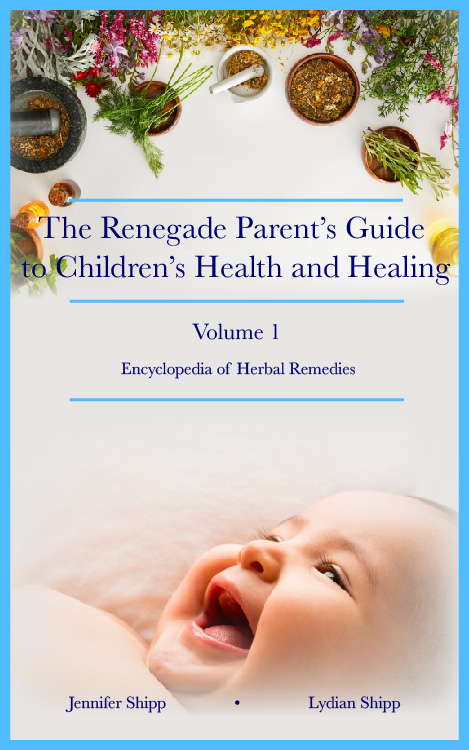
How to Administer Magnesium to Babies and Children
Magnesium can be administered at home either orally or topically in babies and children. Read more about different magnesium administration methods and dosing suggestions below.Drops
Magnesium drops are the best format to give magnesium in if you’re trying to make sure that your child gets a particular amount of magnesium each day. This is because this format is (usually) much easier to dose. An adult can take up to 400mg of magnesium per day in supplement form. Thus, if we follow the supplement dosing guidelines above, the dosages for infants and children would be these:- 6 months to 1 year - 48mg/day
- 1-2 years - 100mg/day
- 3-7 years - 200mg/day
- 8-12 years 300mg/day
Other sources indicate the following dosing guidelines for magnesium supplements:
- Birth to 6 months - 30mg/day
- 7-12 months - 75mg/day
- 1-3 years - 80mg/day
- 4-8 years - 180mg/day
- 9-13 years - 240mg/day
The higher-than-expected dosing recommendation in the second list for 7-12 month olds is indicative of the rapid brain development that occurs during an infant’s first year of life. Magnesium is essential for brain development and neurotransmitter function, and thus, infants at this age need a proportionally higher amount than older children. Magnesium supplements are most easily given to children as drops. Add the magnesium drops to purees for babies, or smoothies for older children. You can also add magnesium to a bottle of breastmilk or formula for very young babies.
Lotion
I have been preparing an oil-based lotion containing magnesium oil for my daughter since she was about 2 months old. I rub it into her skin every night after her bath. Below is the recipe that I use currently:- Magnesium oil
- Coconut oil
- My favorite substitutes are apricot kernel oil, cold-pressed avocado oil, cold-pressed sunflower oil, rosehip oil, or sweet almond oil; you can use a combination of coconut oil and one of these other liquid oils, if you wish, to make a smoother lotion that won’t solidify in colder temperatures.
- Lavender essential oil
- This is not a necessary ingredient, but I like to add some lavender essential oil because I use this magnesium oil at night and a little lavender helps my daughter sleep better. It’s also an insecticide, like citronella, which is a bonus if you live in an area with mosquitos, ants, or other creepy crawlies that you don’t want around your baby.
Mix together all of the ingredients above in a small glass container with a lid. Apply once or twice a day to the baby's skin (I like to give a full body massage and make it into a fun, bedtime activity).
Epsom Salts Bath
Babies and children can be given extra magnesium through the use of an epsom salts bath. While oral administration of magnesium is possible at all ages, ultimately, magnesium is best absorbed through the skin. Therefore, giving an epsom salts bath or applying lotion, as described above, are two of the best ways to give babies and children supplemental magnesium.Epsom salts baths are a way to administer magnesium medicinally. While the magnesium lotion described above is a good choice for daily magnesium supplementation, epsom salts baths can safely administer higher doses of magnesium in order to treat more major health problems. Administering epsom salts baths can also supply sulfur to children, another major mineral that is woefully lacking in the food supply (read more about sulfur deficiency in this article). ‘
Follow the instructions below to administer an epsom salts bath to a child:
- Children under 60lbs / 27kg - Add ½ to ¾ cup epsom salts
- Children 60-100lbs / 27-45kg - Add 1 cup epsom salts
- Children 100+lbs / 45kg+ - Add 1 ½ to 2 cups epsom salts
Before putting the child in the bath, dissolve the appropriate amount of epsom salts in the bathwater. The bathwater should be very warm, but not hot, to allow the pores in the child’s skin to open so that the epsom salts can be absorbed more effectively. Ideally, the bath should last at least 15-20 minutes, and as much of the child’s skin should be covered; if you can lean them back in the bath or have them lay down themselves (without them accidentally swallowing the water), this is best.
Start by giving the epsom salts baths 3 times per week. If your child responds well, increase this as needed; some children may even benefit from having an epsom salts bath every day to help them relax, while other kids may only need the occasional epsom salts bath.
If your child does accidentally swallow a little bit of water during an epsom salts bath, give them some extra water to drink after they get out of the bath. You can take magnesium sulfate orally, even in fairly high doses, but it’s not recommended unless you’re doing something like a gallbladder cleanse since epsom salts do cause diarrhea when ingested orally. Giving the child some extra water to drink will help dilute the magnesium they may have ingested. If they have some diarrhea after drinking some of the epsom salt water, be sure to keep them hydrated, but know that it will likely pass.
When giving epsom salts baths to a baby or child of any age, be sure to keep a close eye on the child so that they don’t swallow the water. It’s also important to choose an epsom salts product that is 100% magnesium sulfate, and that doesn’t contain any additives; there are a lot of products on the market that contain toxic preservatives or fragrances, so look carefully at the ingredients list before buying.
 Click here to subscribe to the Living Database!
Click here to subscribe to the Living Database!
Resources:

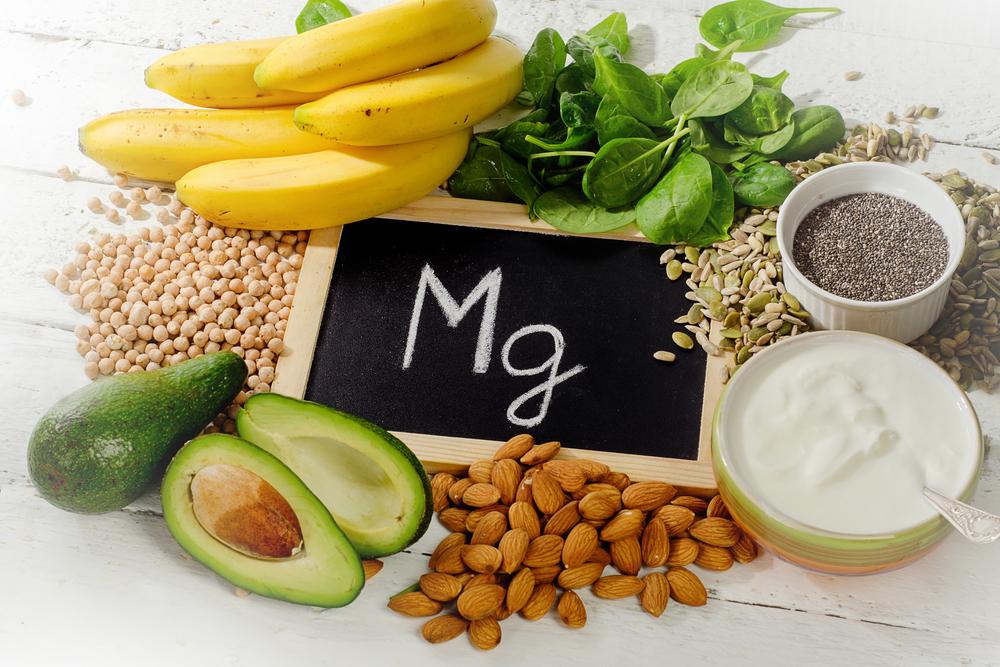 Some of the best food sources of magnesium include nuts and seeds, leafy green vegetables, beans, whole grains, avocado, and grass-fed, organic animal-based milks.
Some of the best food sources of magnesium include nuts and seeds, leafy green vegetables, beans, whole grains, avocado, and grass-fed, organic animal-based milks.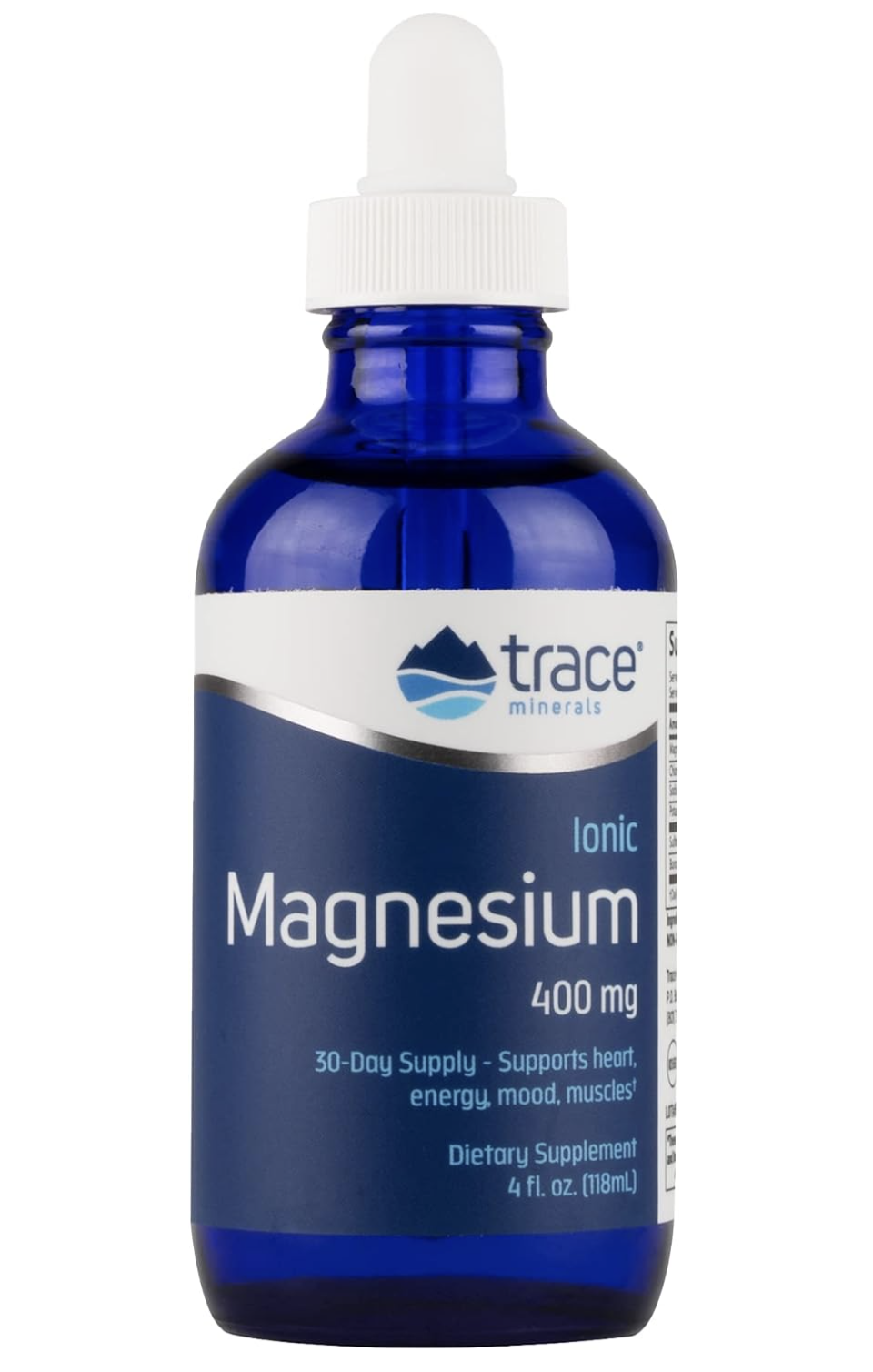 Buy magnesium drops HERE
Buy magnesium drops HERE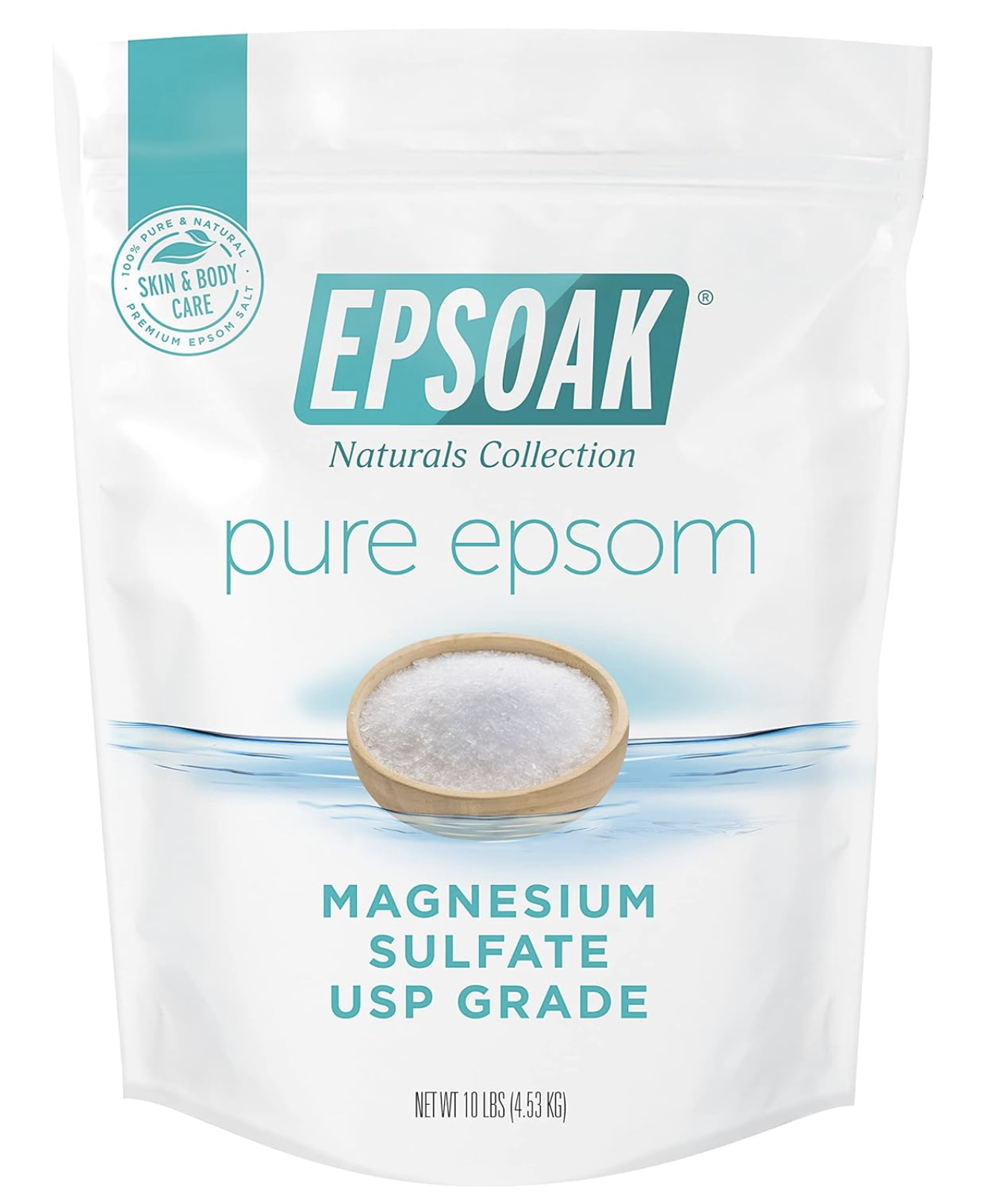 Buy 100% epsom salts HERE
Buy 100% epsom salts HERE





